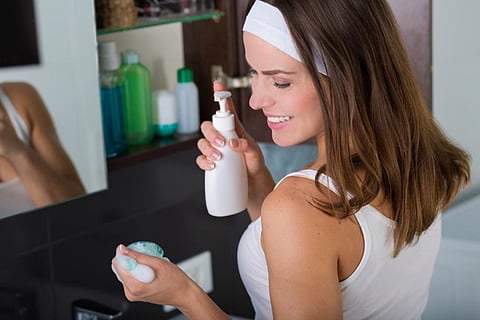

The National Green Tribunal (NGT) directed the Centre on Wednesday to test cosmetics containing microbeads— plastic substances which are dangerous to aquatic life and environment. The decision came on the heels of a plea seeking a total ban on cosmetics containing microbeads.
Microbeads, which are plastic substances measuring less than five milimetres, act as exfoliators (agents which remove dead cells) on skin and teeth when used in soap, toothpaste and other products.
The bench headed by Justice Jawad Rahim said that it is the government’s duty to ensure that no "dangerous" product is allowed to be manufactured or sold to the public.” The bench also directed the Central Drugs Standard Control Organisation (CDSCO) to analyse the products in a laboratory and submit a report in four weeks. The next hearing is scheduled on February 15.
According to the plea filed by a Delhi-based lawyer, Ashwini Kumar, many brands manufacturing beauty products use microbeads. The plea sought a complete ban on the use of microbeads in the manufacture, import and sale of various cosmetics or personal care products. The plea said, “Unregulated production and usage of plastics in microbeads in various cosmetic products available in the market and the excessive usage of such products by the end users is leading to water pollution across the globe.”
In the US, a consensus had emerged about banning microbeads found in cosmetics.
How do microbeads impact the environment?
Kumar claims that microbeads escape the filtration and treatment processes for waste water and end up in rivers and oceans. According to reports, microbeads are made up of Polyethylene (PE) or Polypropylene (PP), polyethylene terephthalate (PET), polymethyl methacrylate (PMMA) and nylon. When they are ingested in marine animals, the plastics break down and toxic substances, which are linked to hormonal imbalances and neurological breakdown, are released.
About 5,000 to 95,000 microbeads are released with every single use of personal care product that uses microbeads, according to a 2015 study by the Marine Pollution Bulletin.
Deepak Apte, director of Bombay Natural History Society, told the media in an interview in 2016 that microbeads “get into the digestive tracts of even large mammals and small fish and choke them to death.”